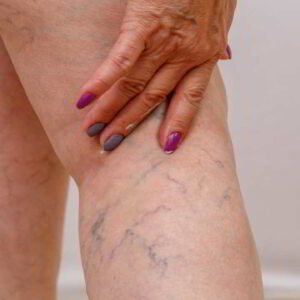When it comes to health, some problems require more attention than others. One of the most commonly overlooked yet serious conditions involves chronic or non-healing wounds. These wounds can be painful, limit mobility, and increase the risk of infections. For cases like this, consulting a wound care specialist can make a critical difference in your recovery and long-term health.
What Is a Wound Care Specialist?
A wound care specialist is a medical professional trained in diagnosing, managing, and treating complex or slow-healing wounds. These experts have the skills to assess wounds that don’t respond to standard treatments and develop customized care plans to promote healing.
This specialist works with various types of wounds, including:
-
Diabetic ulcers
-
Pressure sores (bedsores)
-
Surgical wounds
-
Venous ulcers
-
Traumatic injuries
-
Infected wounds
Why Wound Care Matters
Untreated or poorly managed wounds can lead to serious complications, including infections, tissue damage, and even amputations. The longer a wound remains open, the higher the risk of complications. Seeking care from a wound care specialist ensures that proper techniques and advanced therapies are applied for faster, safer healing.
Common Reasons to Visit a Wound Care Specialist
Many people aren’t sure when to see a wound care specialist. Here are some clear indicators that professional care is needed:
Wound Not Healing Within Two Weeks
If you’ve been treating a wound at home or with basic medical care and it hasn’t shown noticeable improvement after two weeks, it’s time to see a specialist.
Signs of Infection
Watch for redness, warmth, swelling, pus, or increasing pain around a wound. These symptoms can signal a serious infection requiring professional intervention.
Chronic Health Conditions
People with underlying conditions such as diabetes, poor circulation, or immune system disorders are at higher risk for slow-healing wounds. A wound care specialist can help manage these cases safely.
Post-Surgical Wound Complications
If a surgical site shows signs of delayed healing, excess drainage, or reopening, specialized care can prevent infection and other risks.
Types of Wounds Treated by Wound Care Specialists
Wounds come in many forms, and a wound care specialist is equipped to handle them all:
Diabetic Ulcers
These are common in individuals with diabetes and usually develop on the feet due to poor blood circulation and nerve damage.
Pressure Ulcers
Often affecting patients with limited mobility, these wounds form from prolonged pressure on the skin.
Venous Ulcers
Caused by poor circulation in the legs, venous ulcers appear around the ankles and can become chronic without proper care.
Traumatic Wounds
Injuries from accidents, falls, or burns that involve significant tissue damage may require a wound care specialist for proper management.
Infected Wounds
Any wound showing signs of infection, such as pus, odor, or spreading redness, needs professional care to avoid further complications.
Advanced Treatments Offered by Wound Care Specialists
A wound care specialist offers treatments beyond what’s available through general care. These may include:
Debridement
The removal of dead or infected tissue from a wound to speed up healing.
Specialized Dressings
Advanced wound dressings promote healing by keeping the wound moist, preventing infection, and absorbing drainage.
Hyperbaric Oxygen Therapy
A treatment that involves breathing pure oxygen in a pressurized room, helping blood carry more oxygen to the wound and speeding healing.
Compression Therapy
Used for venous ulcers, this involves applying pressure to reduce swelling and improve blood flow.
Skin Grafting
In severe cases, a wound care specialist may perform skin grafts to cover large or non-healing wounds.
The Wound Healing Process
Understanding how wounds heal helps explain why professional care is often necessary for complex cases. The healing process occurs in several stages:
-
Hemostasis: Blood clotting stops bleeding.
-
Inflammation: White blood cells clean the wound and fight infection.
-
Proliferation: New tissue begins to form.
-
Maturation: The wound closes and strengthens.
Delays or complications in any of these stages require intervention from a wound care specialist.
Who Can Benefit from a Wound Care Specialist?
While anyone with a chronic or complex wound might need professional care, certain individuals are at higher risk:
-
Diabetics
-
People with circulatory problems
-
Those with limited mobility
-
Elderly individuals
-
Patients recovering from surgery
-
Individuals with weakened immune systems
For these groups, wounds can progress quickly without specialized care.
How to Prepare for Your Wound Care Appointment
Getting the most out of your visit to a wound care specialist involves being prepared:
-
Bring a list of medications and health conditions.
-
Take note of when the wound appeared and any treatments already tried.
-
Pay attention to changes in pain, size, or appearance.
-
Be ready to discuss your daily habits, as nutrition and lifestyle affect healing.
Preventive Tips to Avoid Chronic Wounds
While not every wound can be prevented, certain practices reduce your risk:
-
Maintain good blood sugar control if diabetic.
-
Keep skin clean and moisturized.
-
Inspect your body daily for cuts or blisters if at risk.
-
Avoid prolonged pressure on bony areas.
-
Eat a balanced diet rich in protein, vitamins, and minerals.
-
Follow post-surgical care instructions carefully.
FAQs About Wound Care Specialists
Q1: What makes a wound care specialist different from a regular doctor?
A: A wound care specialist has advanced training in managing complex, chronic, and infected wounds, offering specialized treatments not typically available through general medical care.
Q2: Do I need a referral to see a wound care specialist?
A: Depending on your healthcare plan, you may not need a referral. However, consulting your primary care provider can help coordinate comprehensive care.
Q3: How long does wound treatment typically take?
A: Healing times vary based on wound type, location, and underlying health conditions. Some wounds heal within a few weeks, while chronic wounds may require months of care.
Q4: Is hyperbaric oxygen therapy safe for everyone?
A: While generally safe, this therapy isn’t suitable for everyone. A wound care specialist will evaluate your health history to determine if it’s appropriate.
Q5: How often will I need to visit the specialist?
A: Visit frequency depends on the wound’s severity and response to treatment. Some wounds may require daily or weekly visits, while others can be managed with less frequent check-ins.







